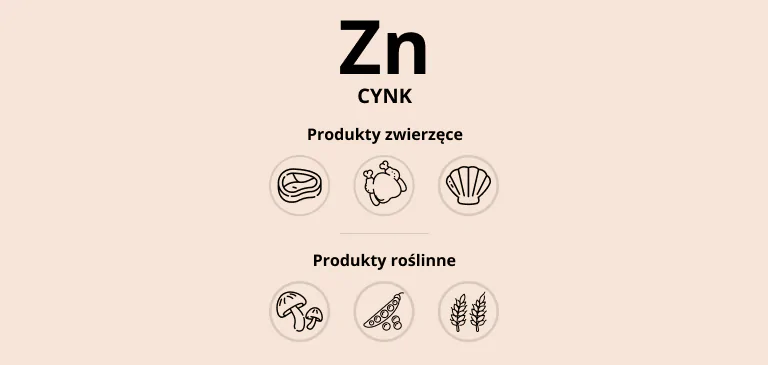Zinc
Year of discovery: 1746 | Andreas Marggraf
Almost all cells contain zinc, which is a nutrient essential for normal growth and development. The highest concentrations of zinc are found in muscles and bones. The body closely regulates the levels of this element. Stress and infections cause a decrease in plasma zinc levels. Zinc is involved in various catalytic, regulatory and structural functions. Zinc is a catalyst for about 100 enzymes. It has a key function in the structure of cell transport proteins such as vitamins A and D. Zinc regulates gene expression; stabilizes cell membranes, enhancing their protection against oxidative stress; supports immune function; is involved in the synthesis, storage and release of insulin; interacts with platelets during blood clotting; and influences the function of thyroid hormones. It is a necessary component of visible pigments; proper taste perception; wound healing; sperm production; fetal development; and proper behavior and improves academic performance.
Main sources of zinc
Meat, some shellfish, legumes, whole grain products and some enriched cereals.
Bioavailability of zinc
As with iron, zinc absorption will depend on the body's zinc stores, with those with lower levels of zinc in the body absorbing zinc more efficiently in the gut. Phytate-rich foods will lead to the loss of previously absorbed zinc with feces. High intake of calcium, phosphorus or iron also reduces zinc absorption. Proteins can increase zinc absorption.
Risks associated with insufficient zinc intake
People who eat unprocessed or minimally processed foods consisting of unrefined whole grains or whole grain bread without sourdough and few animal foods are at higher risk of zinc deficiency. Zinc requirements are higher during periods of growth and development, such as infancy, childhood, pregnancy and lactation. Zinc deficiency can occur even with small restrictions in zinc intake. Impaired growth rate is the main clinical feature of zinc deficiency. Immune system function and pregnancy outcomes improve after zinc supplementation. For example, zinc is often given as an adjunctive therapy for diarrhea.



